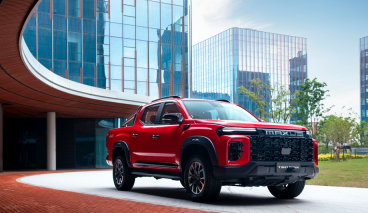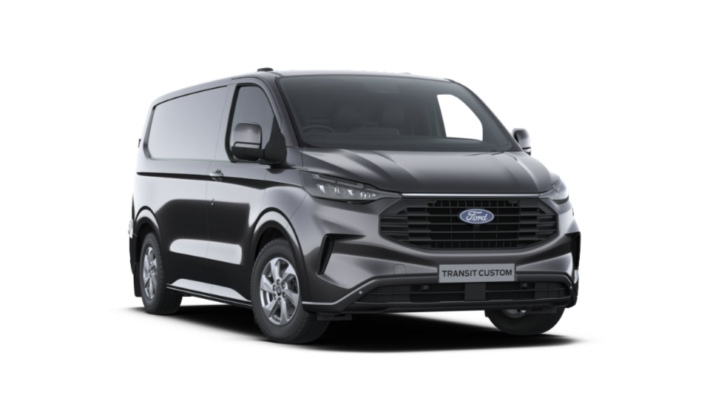
Navigating UK Pickups BIK Changes: A Friendly Guide for Business Owners
Navigating the world of business vehicle tax can seem daunting, but we’re here to make it a breeze, especially with the upcoming UK pickups BIK changes set for April 2025. These changes are more than just numbers on a page—they could reshape how you view your fleet and its costs. With the 2025 BIK rates on the horizon, understanding the implications now can save you headaches and pounds down the line. We’ll guide you through a real-world comparison of vehicles from 2024 to 2025, highlighting what these shifts mean for your business. So, if you’re a UK business owner or a fleet manager eager to stay ahead, let’s explore these changes together and ensure your business is ready for the future.
Understanding BIK Implications
Let’s dive into the world of BIK (Benefit in Kind) and why it’s crucial for your business. Understanding these implications can help you make smarter decisions about your company vehicles.
What Are BIK Implications?
Benefit in Kind (BIK) is a tax on employees who receive perks or benefits from their employer in addition to their salary. For company vehicles, BIK is calculated based on the vehicle’s value and its CO2 emissions.
BIK implications refer to the financial consequences of providing company cars to employees. These implications affect both the employer and the employee.
For employees, it means paying additional tax on the benefit of having a company car. The amount depends on the car’s value and its environmental impact.
For employers, BIK affects National Insurance contributions and the overall cost of providing company vehicles.
Why It Matters for Business Owners
Understanding BIK implications is crucial for business owners for several reasons:
-
Cost Management: Knowing BIK rates helps in budgeting and controlling fleet expenses.
-
Employee Satisfaction: Choosing vehicles with lower BIK rates can lead to happier employees who pay less tax.
-
Environmental Responsibility: BIK rates encourage the use of low-emission vehicles, aligning with sustainability goals.
By grasping these implications, you can make informed decisions about your fleet that benefit both your business and your employees. It’s not just about compliance – it’s about optimizing your resources and staying competitive in the market.
UK Pickups BIK Changes
The landscape of company vehicle taxation is shifting, particularly for pickups. Let’s explore the upcoming changes and how they might affect your business.
Changes Effective from April 2025
From April 2025, the UK government is implementing significant changes to how pickups are taxed under the BIK scheme. These changes aim to align pickup taxation more closely with other company vehicles.
Previously, many pickups were classified as commercial vehicles, benefiting from lower tax rates. However, the new rules will treat most pickups as cars for tax purposes.
This shift means that BIK rates for pickups will be calculated based on their CO2 emissions and list price, similar to other company cars. As a result, many business owners may see an increase in their tax obligations for these vehicles.
It’s important to note that these changes don’t apply to all commercial vehicles – just those that are primarily used as passenger vehicles, which includes most modern pickups.
Impact on Business Vehicle Tax
The new BIK changes for pickups will have a significant impact on business vehicle tax:
-
Higher Tax Liability: Many businesses will face increased tax costs for their pickup fleets.
-
Shift in Vehicle Choice: Companies may reconsider their vehicle selections, potentially moving away from pickups to more tax-efficient options.
-
Environmental Considerations: The changes encourage the adoption of lower-emission vehicles, aligning with broader environmental goals.
These impacts mean that businesses need to reassess their fleet strategies. It’s not just about the immediate tax implications – it’s about long-term planning and adapting to a changing regulatory landscape.
Consider reviewing your current fleet composition and exploring alternatives that might offer better tax efficiency under the new rules.
Real-World Comparison: 2024 vs 2025
To truly understand the impact of these changes, let’s look at a practical comparison between the current system and what’s coming in 2025.
Vehicles Comparison 2024 to 2025
Let’s compare how the BIK rates change for a typical pickup truck from 2024 to 2025:
|
Year |
Vehicle |
List Price |
CO2 Emissions |
BIK Rate |
Annual BIK Value (40% taxpayer) |
|---|---|---|---|---|---|
|
2024 |
Pickup A |
£30,000 |
200g/km |
Fixed rate £3,600 |
£1,440 |
|
2025 |
Pickup A |
£30,000 |
200g/km |
37% |
£4,440 |
As we can see, the same vehicle faces a significant increase in BIK value under the new system. This translates to higher costs for both employees and employers.
For businesses, this means reconsidering the role of pickups in their fleets. It might be worth exploring alternative vehicles or looking into ultra-low emission options to mitigate the tax increase.
Remember, these figures are illustrative and actual rates may vary based on specific vehicle details and any future adjustments to the tax system.
Preparing Your Fleet for 2025 BIK Rates
With the 2025 BIK rates on the horizon, it’s crucial to start preparing your fleet now. Here are some steps to consider:
-
Audit Your Current Fleet: Evaluate which vehicles will be most affected by the changes.
-
Explore Alternatives: Look into electric or hybrid options that offer lower BIK rates.
-
Calculate Long-Term Costs: Factor in the new BIK rates when considering vehicle acquisitions.
-
Educate Your Team: Ensure your employees understand how these changes might affect them.
-
Consult with Experts: Consider seeking advice from fleet management specialists or tax advisors.
By taking proactive steps now, you can minimize the impact of these changes on your business. It’s an opportunity to reassess your fleet strategy and potentially make more sustainable and cost-effective choices for the future.





